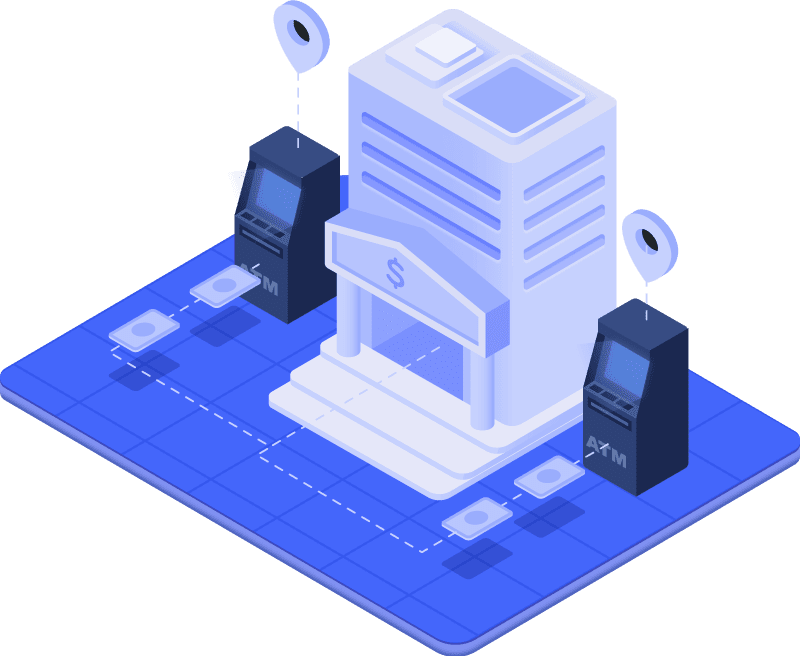
Image Source: Freepik
In today’s fast-paced digital world, businesses are increasingly reliant on software solutions to enhance their operations and improve customer experiences. For growing companies, selecting the right software development partner can be crucial for their success. This checklist is designed to guide business owners through the essential considerations when they’re looking to outsource software development.
Whether you are a startup looking to build your first product or an established company needing to enhance your existing offerings, the right partner can help you accelerate progress. The following sections will outline critical aspects to evaluate potential partners, ranging from technical expertise to cultural alignment. Understanding these elements can help ensure that your project is a success.
As you read through this checklist, consider your company’s specific needs. Each business may face unique challenges and opportunities, which means that your software development partner should be able to tailor their approach accordingly. Let’s dive in.
1. Assessing Technical Expertise
Technical expertise is a fundamental aspect of selecting a software development partner. You want to ensure your potential partner possesses the necessary skills to meet your project requirements. Start by evaluating their technical competencies in the programming languages, frameworks, and technologies relevant to your project.
Additionally, consider the following factors:
• Experience with similar projects.
• Ability to adopt new technologies.
• Proficiency in quality assurance processes.
• Knowledge of cybersecurity practices.
It’s beneficial to ask for a portfolio or case studies that highlight their previous work. Look for projects that resonate with your objectives. Not all companies will have the same experience, and this could influence your decision.
1.1 Relevant Experience
Relevance is key when assessing a partner’s experience. Consider whether they have worked with businesses in your industry or with similar technological requirements. For instance, if you’re in the healthcare sector, knowledge of compliance standards like HIPAA could be valuable.
Additionally, inquire about the size and complexity of the projects they have executed. A company that has successfully completed a project similar in scope to yours will likely have insights and lessons that can save you time and money.
1.2 Innovation and Adaptability
In a rapidly evolving tech landscape, innovation is critical. Check if the software development partner engages in continuous learning and improvement. A degree of flexibility and adaptability is important to cope with changes in project requirements or market dynamics.
Ask about their approach to keeping up with technology trends. Companies that actively pursue learning opportunities, whether through training or industry conferences, are often more capable of implementing cutting-edge solutions.
2. Understanding Project Management Processes
Project management methodologies can significantly affect the success of your software development project. Different companies may follow various project management frameworks, such as Agile, Scrum, or Waterfall. Understanding these methodologies is key to aligning your expectations.
Ask potential partners about their project management approach. Do they emphasize communication and adaptability? How do they handle changes in project scope? These factors can help you gauge how the partner will manage your project effectively.
In addition to methodologies, consider their use of project management tools. Tools like JIRA or Trello can facilitate better tracking of your project’s progress. Ultimately, transparency and effective communication are vital for seamless collaboration.
2.1 Collaboration and Communication
Effective communication channels are essential when working with a software development partner. Miscommunication can lead to delays and misunderstandings that may derail a project. Therefore, clarify how they will communicate with you and your team throughout the project.
Inquire about their response times for inquiries and whether you will have regular updates. A partner that prioritizes clear communication will likely foster a more productive working relationship.
2.2 Feedback Mechanisms
Constructive feedback is vital for continuous improvement. Discuss how the partner gathers and implements feedback during the development process. Do they have a structured mechanism for this? Understanding how they handle feedback can give you an insight into their commitment to quality and client satisfaction.
Look for partners who embrace an iterative approach. This means they welcome feedback regularly and are willing to make necessary adjustments, which is often essential in software development.
3. Evaluating Cultural Fit
Cultural fit is often overlooked but is vital in ensuring a successful partnership. Your software development partner’s organizational culture should align with your business values and work philosophy. A strong cultural match often leads to better teamwork and understanding.
When evaluating potential partners, assess their company culture. Ask about their values, mission, and work environment to see if they reflect your company’s ethos. Additionally, consider the following factors:
• Company core values.
• Approach to employee engagement.
• Work flexibility and remote work compatibility.
A partner whose culture aligns with yours will likely lead to a more harmonious working relationship, reducing friction and enhancing productivity.
3.1 Team Dynamics
Understanding the dynamics of the software development team is crucial. Inquire about the team members you will be working with and their roles. Are they experienced in their fields? Are there opportunities for you to engage directly with them? Knowing whom you will communicate with regularly can clarify expectations.
Furthermore, investigate the firm’s approach to teamwork. Companies that foster a collaborative environment often produce superior results. Ask potential partners how they manage teamwork and conflict resolution.
3.2 Client Portfolio and Testimonials
A credible partner will often have a diverse client portfolio and positive testimonials. Look for case studies that demonstrate successful projects, especially those related to your industry. Additionally, don’t hesitate to request client references to glean insights into their experiences.
Reading reviews or testimonials can provide perspective on the partner’s reliability and quality. Moreover, consistent positive feedback signifies a strong commitment to client satisfaction.
4. Financial Stability and Transparency
Financial stability is an important aspect to consider when selecting a software development partner. A financially stable company is more likely to deliver on its promises, maintain staffing levels, and invest in its growth.
Discuss their pricing models and ensure you understand their billing practices. Transparency in pricing builds trust. Ask about additional costs that may arise during the project and if those will be clearly communicated.
It’s critical to evaluate whether the estimated costs align with your budget. Establishing a clear understanding of the financial terms will help avoid surprises down the line. After all, an unanticipated expense can impede progress.
4.1 Pricing Models
Different software development companies may employ varied pricing models. The three commonly used models are:
• Fixed Price: This model is beneficial for projects with clearly defined scopes and deliverables.
• Time and Material :This is suitable for flexible projects where the scope may evolve.
• Value-Based Pricing :Here, pricing correlates with the value delivered to the client.
Understanding which pricing model the partner offers can influence your budget planning. Choose the model that aligns best with your project’s nature and scope.
4.2 Contracts and Agreements
Having a clear contract is vital in any project. The contract should outline the terms of engagement, including deliverables, timelines, payment schedules, and confidentiality clauses. Review all terms carefully and ensure that they align with what was discussed.
Be prepared to negotiate terms. An open discussion about expectations will help solidify the partnership and ensure that both parties are aligned on objectives. A well-structured contract is essential for a productive relationship.
5. Post-Launch Support and Maintenance
Software development does not end with launching the product. Post-launch support is essential for addressing any issues that arise, ensuring that the software remains relevant and functional.
Inquire about the partner’s post-launch services. Will they provide regular maintenance updates? What support channels will be available to you after the project is completed? Understanding their approach to support will inform your long-term relationship with the partner.
Post-launch support can vary in the level of commitment depending on the partner. Preparing for the ongoing relationship will ensure your software meets evolving market needs.
5.1 Maintenance Services
Regular maintenance is crucial for software longevity. Discuss potential maintenance packages that the partner offers. This can include bug fixes, updates for compliance, and performance enhancements.
Maintain a list of any ongoing requirements your company may have post-launch. This consideration can prevent problems from accumulating over time, keeping your software performing optimally in the long run.
5.2 Training and Knowledge Transfer
Effective training and knowledge transfer are often overlooked yet critical components. Post-launch, your team will need to understand how to use and manage the software effectively. Ensure the provider offers this training as part of their package.
Ask what resources will be available for your team, such as documentation or training sessions. Proper knowledge transfer will empower your staff to use the software efficiently, maximizing your return on investment.
6. Conclusion of the Checklist
Navigating the process of selecting a software development partner is significant for any growing company. Each element outlined in this checklist carries weight in your eventual choice. Cultivating a partnership that respects your specific needs while providing technical expertise will streamline your path towards success.
A reliable partner can not only provide technological support but also align with your business strategy. Focus on partners who exhibit adaptability, transparency, and a willingness to build a collaborative environment.
Investing time into this checklist will pay off. A strong partnership can lead your company through various developmental phases while fostering long-term growth and innovation. Keep your goals at the forefront, and choose wisely.
7. A Lasting Partnership: Building Blocks for Success
As you enter into a partnership with a software development company, remember that it’s not just about doing business. It’s about building a relationship that thrives on mutual respect, clear communication, and shared objectives.
In this competitive landscape, the choice comes down to building adaptive strategies that work within your firm. Take your time to explore options, engagements, and build toward a connection with your partner that enriches both parties.
In conclusion, as you consider a software development company in france , weigh these factors carefully. Your effort in this selection process will determine the course of your project—and ultimately the success of your business.








